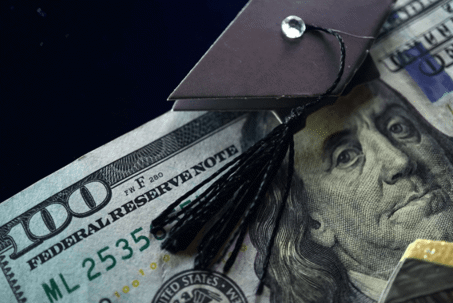Student loan debt was already a much-discussed topic prior to the devastation caused worldwide, and in the US for millions of citizens struggling with health concerns, financial concerns, and in all too many cases—both. Federal student loan borrowers were suddenly in the news for positive reasons as long-term deferments have continued. Evictions were halted, debt collectors were put on hold for months, but for private student loan borrowers, there seemed to be little care, aside from minimal deferrals or allowances for late pays.
If you have a private student loan, you may be worried about your own finances but also hoping that your co-signer will not ever be affected. This can be a difficult line to walk, however, if you think you might be missing a payment or two; of course, you don’t want to alarm the co-signer, and you may be somewhat embarrassed about dealing with difficult financial issues that could come to light with a family member—especially if they had any concerns about becoming a co-signer in the beginning.
Missed payments could become a credit concern though. If, on the flip side, you are a co-signer, you may be worried about how to find out what is going on if for some reason there is a lack of communication or you just have worries about the borrower. This is certainly a valid worry in the financial climate today after so many individuals in the US have lost their jobs and continue to struggle, especially if their health has been impacted.
If you are a borrower, the best course of action is to stay in good communication with your co-signer, and to answer their questions about payments, even if it may be painful to admit that you are having financial problems or are worried you will have trouble making payments in the future. As a co-signer, if there are concerns, the best course of action is to check your credit report through one of the major three credit reporting agencies such as Equifax, TransUnion, or Experian.
If you are being sued, contact an attorney from Fitzgerald & Campbell, APLC as soon as possible to avoid the possibility of having a default judgment granted against you, which could result in the following: wage garnishing, levying of property or freezing of checking accounts.
Speak with an attorney from Fitzgerald & Campbell, APLC as soon as possible to examine your options. Our attorneys have decades of experience in serving clients as they navigate through challenging financial situations, to include student loan issues, bankruptcy, and other debt management processes. We are here to help! Click here to schedule a free 30-minute consultation, call us at (844) 431-3851, or email us at info@debtorprotectors.com.

